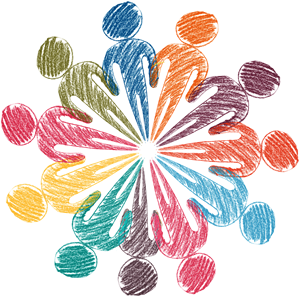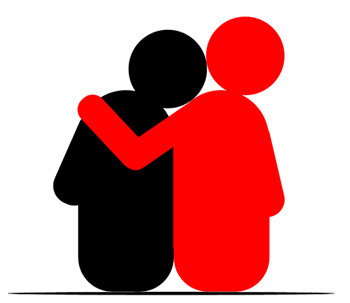Innovation Communities 2019-20
Culturally Responsive Teaching (CRT)
 Culturally Responsive Teaching (CRT) is an approach to pedagogy that recognizes the importance of including students' cultural references in all aspects of learning (Ladson-Billings, 1994). As CRT was initially developed in K-12 contexts, there is a need to explore how this vital research can be translated to higher education in general, and specifically in the SOU community.
Culturally Responsive Teaching (CRT) is an approach to pedagogy that recognizes the importance of including students' cultural references in all aspects of learning (Ladson-Billings, 1994). As CRT was initially developed in K-12 contexts, there is a need to explore how this vital research can be translated to higher education in general, and specifically in the SOU community.
To meet this need, a group of faculty led by Margaret Perrow, Younghee Kim and Jamie Hickner has recently launched a CRT Innovation Community. The group plans to explore existing research in CRT, examine their own curriculum and instructional practices in light of this research, develop and experiment with new CRT-informed practices, and disseminate findings and applications to SOU and the broader higher education community.
Join us for a free workshop with Matthew Reynolds on Friday, January 24 from 9am-12pm in the Rogue River Room, Stevenson Union. Closing out the morning's workshop, Suresh Appavoo, Senior Executive for Equity and Diversity, will facilitate a session to frame a plan for implementing culturally responsive teaching at SOU. Let us know you're coming!
Read more: A Framework for Culturally Responsive Teaching. Contact Margaret Perrow for more information.
Sustainability Across the Curriculum
The American Association for the Advancement for Sustainability in Higher Education has laid out recommendations and guidelines for integrating sustainability into the classroom in Sustainability Curriculum in Higher Education: A Call to Action. In response, a cohort of 10 faculty from BCE interested in integrating sustainability into their curriculum have been identified via a proposal submission: Jeremy Carlton, Andrew Gay, Kristin Hocevar, Erica Knotts, Melisa Matthewson, Alena Ruggiero, Trish Steyer, Steven Petrovich, Dee Fretwell, and Dennis Slattery. This innovation community is being led by a team of four faculty from BCE, Pavlina McGrady, Jamie Trammel, Christopher Lucas, and John Gutrich.
The cohort of faculty will attend a one-day workshop as well as monthly meetings with the cohort and the program facilitators. Each participant has committed to substantially changing some component of their course’s curriculum and/or pedagogy to incorporate a commitment to sustainability. Most importantly, through work in the innovation community and plans to disseminate their work to the broader university community, the program is expected to facilitate interdisciplinary collaboration in terms of research, grant writing, and course development, and build community within the university.
Contact Pavlina McGrady for more information.
Sustainable Compassion for Educators
 This innovation community will convene faculty to study the theory and practice of Sustainable Compassion Training (SCT), a system of compassion- and mindfulness-based meditation practices adapted from Tibetan Buddhism for a western, secular audience and informed by social psychology, developmental psychology, cognitive psychology, and neuroscience. SCT has been taught and adapted throughout the world for people in caring roles and professions to help them train in sustainable and inclusive compassion. For example, the Mind and Life Institute adapted SCT into its Call to Care curriculum for educators and the Courage of Care Coalition has adopted SCT in its programming for school systems and social activists. Initial research suggests that SCT can foster compassion across group identities and under other challenging conditions (for a review, see Condon & Makransky, 2019).
This innovation community will convene faculty to study the theory and practice of Sustainable Compassion Training (SCT), a system of compassion- and mindfulness-based meditation practices adapted from Tibetan Buddhism for a western, secular audience and informed by social psychology, developmental psychology, cognitive psychology, and neuroscience. SCT has been taught and adapted throughout the world for people in caring roles and professions to help them train in sustainable and inclusive compassion. For example, the Mind and Life Institute adapted SCT into its Call to Care curriculum for educators and the Courage of Care Coalition has adopted SCT in its programming for school systems and social activists. Initial research suggests that SCT can foster compassion across group identities and under other challenging conditions (for a review, see Condon & Makransky, 2019).
This project will begin with a one-day kickoff SCT retreat, the Sustainable Heart Workshop, on February 29, 2020 in the Meese Room, Hannon Library Room 305. The workshop will be co-presented by Dr. Paul Condon and his collaborator, Dr. John Makransky, the creator of SCT. The focus of the workshop is learning how to cultivate deep, replenishing, and inclusive compassion and wisdom. Sustainable Compassion Training is immediately accessible to people of all backgrounds, religious and/or secular.
SCT has three modes of meditative practice. The receptive mode helps us find new access to hidden qualities of love, compassion, inner peace, and discernment. The deepening mode helps us settle into the source of those qualities in the depth of our awareness—with increasing relaxation, inner acceptance and spaciousness that is healing and freeing in mind and body. The inclusive mode helps us come from that depth to connect with others in their deep dignity and humanity with replenishing and expansive powers of care, compassion and discernment in action. Meditations of each mode will be introduced in the workshop, with opportunities for questions and discussion.
This workshop is offered to the public free of charge with sponsorship by the SOU Center for the Advancement of Teaching and Learning. Lunch is not provided; plan on a lunch break from 12:00-1:30. Find out how modern psychology along with contemplative theory and practice can help you learn to access sustaining powers of care and compassion, beyond mental depletion or compassion fatigue. Register for this free workshop.
The one-day event will be followed by an eight-week learning community for SOU faculty Spring term, where faculty will meet once a week for 45 minutes to engage in meditation practice and dialogue. Participating faculty will produce a culminating report on their experience (e.g., a white paper for dissemination at SOU, a manuscript for submission to a peer-reviewed journal in scholarship of teaching and learning, and/or a panel discussion hosted by CATL for the SOU community). Let us know you're interested in participating in this study group.
Contact Paul Condon for more information.
About the Presenters
John Makransky, PhD, is Associate Professor of Buddhism and Comparative Theology at Boston College, senior advisor for Chökyi Nyima Rinpoche’s Centre of Buddhist Studies at Rangjung Yeshe Institute in Nepal, former president of the Society of Buddhist-Christian studies, and co-founder of the Foundation for Active Compassion and the Courage of Care Coalition. In 2000, John was ordained as a Lama in the Nyingma tradition of Tibetan Buddhism—a teacher of innate love and wisdom practices. For the past eleven years, in consultation with his Tibetan teachers, John has been teaching meditations of innate compassion and wisdom that he adapted from Tibetan Buddhism for those in caring roles and professions, modern Buddhists and people of all other spiritual traditions. For this, John developed the Sustainable Compassion and Wisdom Training model (SCT), which is being applied to help empower a more replenishing and unconditional power of care and compassion, beyond mental depletion and compassion fatigue, for teachers, healthcare providers, social workers, therapists, counselors, and activists.
Paul Condon, PhD, is an Assistant Professor of Psychology at Southern Oregon University. Paul’s research examines the influence of meditation on prosocial emotion and behavior. His research also examines the contributions of psychological science to modern meditation programs in dialogue with Buddhist philosophy with applications for sustainable and inclusive compassion. Paul is a meditation teacher with the Foundation for Active Compassion and has studied meditation within the Nyingma and Kagyu traditions of Tibetan Buddhism. At SOU, Paul teaches courses in Health Psychology, Sustainable Compassion, History of Psychology, Statistics, and General Psychology.




